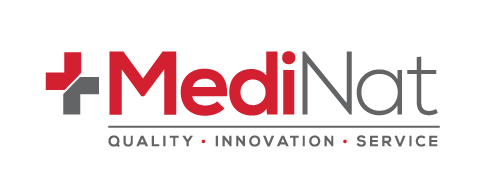
Upholding Integrity in Workplace Drug Testing - Chain of Custody & Accreditation
Share
Ensuring the integrity of workplace drug and alcohol testing is critical for compliance, legal defensibility, and employee safety. A key component during a standard employee drug test, is the Chain of Custody (CoC), which documents the handling and transfer of samples from collection to analysis.
In Australia, workplace drug and alcohol testing follow strict guidelines under AS/NZS 4308:2023 (urine drug testing), AS/NZS 4760:2019 (oral fluid testing), and AS 3547 (breath alcohol testing).
What is a Chain of Custody (CoC) Form?
A Chain of Custody form is a legally binding document that tracks the sample at every stage of the testing process. It ensures that samples remain uncontaminated, untampered, and correctly identified. The CoC form is crucial for verifying the legitimacy of results and defending against any potential legal challenges.
Key Elements Required on a Chain of Custody Form
To comply with Australian Standards, a CoC form must include:
- Donor Information: Full name, date of birth, and identification number (e.g., employee ID or driver’s license).
- Collector Information: Name and signature of the collector conducting the test.
- Collection Details: Date, time, and location of the sample collection.
- Type of Sample: Urine (AS/NZS 4308:2023) or oral fluid (AS/NZS 4760:2019) or breath alcohol test (as per AS 3547).
- Chain of Custody Tracking: Documentation of each transfer of the sample, including signatures, dates, and times.
- Tamper-Evident Seal Number: The unique identifier of the seal used to secure the sample.
- Test Panel Details: The specific drugs or substances being tested for.
- Declaration of Donor and Collector: Confirmation signatures that the test was conducted correctly and in accordance with procedures.
- Laboratory or Onsite Confirmation: If applicable, details of the accredited laboratory handling the confirmatory analysis.
Chain of Custody for Urine (AS/NZS 4308:2023) and Oral Fluid Testing (AS/NZS 4760:2019)
Samples must be securely sealed, documented, and transferred to a NATA-accredited laboratory for confirmation testing if required. Ensure the sample remains uncontaminated and accurately recorded.
Breath Alcohol Testing (AS 3547)
While breath alcohol tests typically provide immediate results, CoC documentation may be required for evidentiary testing.
Who Receives a Copy of the CoC Form?
After the standard employee drug test is completed, the CoC form is distributed as follows:
- Testing Facility or Collector: Retains a copy for compliance records.
- Employer or Safety Representative: Receives a copy for workplace safety records.
- Laboratory (if applicable): Requires a copy to verify sample integrity.
- Donor (Employee/Worker): May receive a copy upon request for transparency.
Why is the Chain of Custody Important?
The Chain of Custody ensures:
- Legal Defensibility: Protects against challenges to test results.
- Sample Integrity: Prevents contamination, tampering, or mix-ups.
- Regulatory Compliance: Aligns with Australian Standards for workplace drug and alcohol testing.
- Fairness and Transparency: Provides a documented process for all parties involved.
Frequently Asked Questions:
Can someone refuse to be tested?
Yes but it will have consequences. The consequences will be stipulated in the organisation’s Drug and Alcohol Policy. An employee has the right to refuse a test. However, that refusal may have a detrimental impact on their continued employment with that organisation. It is critical that an organisation has a comprehensive Alcohol and Drug Policy that is widely known by all staff and linked back to their employment agreement. A good policy will ensure compliance if you choose to test, and help avoid any unnecessary conflict.
Do I have to get a tester on-site, or do it ourselves?
Either is acceptable. An organisation has many different options to conduct a test. You can have a specialised on-site tester come to your site, or have a nominated and fully trained member of staff conduct the test. Alternatively, you can send the staff member to a workplace medical facility to be tested. An external party can make it easier on everyone should a positive test be sent for laboratory testing, which later proves to be positive and the person loses their employment.
Implement a Safe and Compliant Testing Program Today?
MediNat provides both urine and oral fluid Chain of Custody forms designed to meet Australian/New Zealand Standards. Ensuring proper documentation with the correct Chain of Custody form enhances the credibility of your workplace testing program. Also, offering a wide range of certified, reliable and accurate drug test kits and industrial breathalysers to support your program.
Speak to an Expert: Call our team for professional advice on an effective and compliant testing program.
Call: 1300 725 520
Email: sales@medinat.com.au
Online: Contact service click here
Or shop now for a either Urine or Saliva Chain of Custody booklet.
